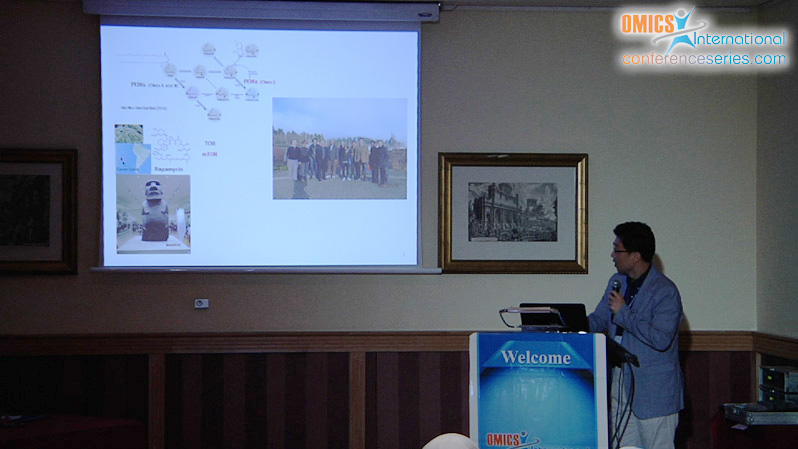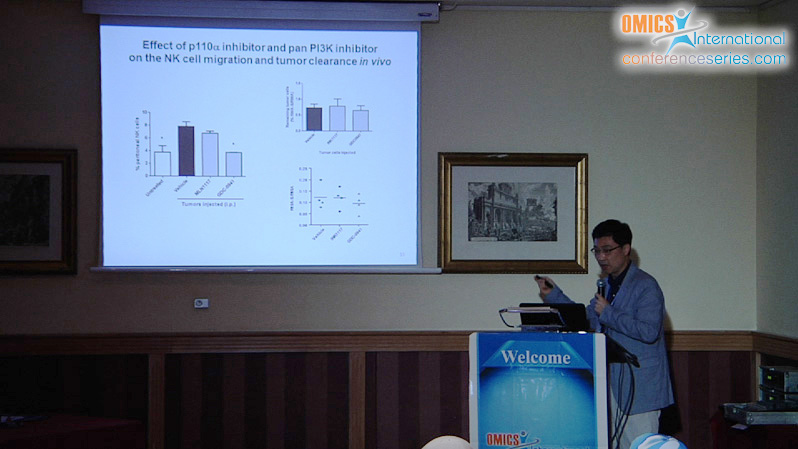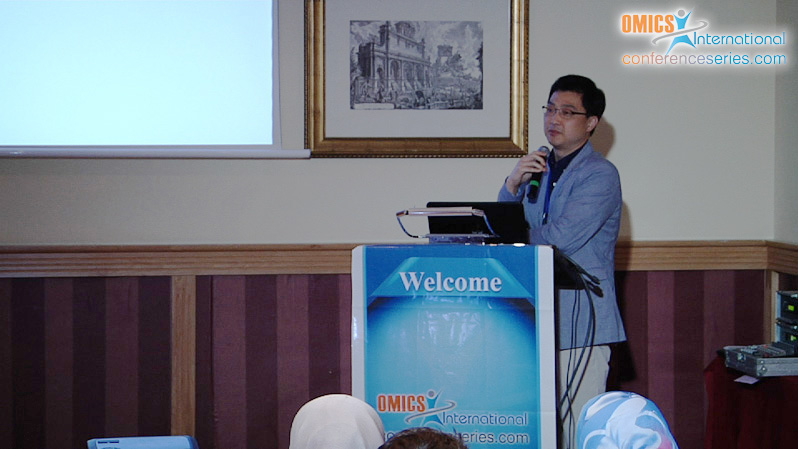
Sung Su Yea
InjeUniversity College of Medicine, South Korea
Title: Differential regulation of NK cell functions by PI3K isoforms and mTOR complexes
Biography
Biography: Sung Su Yea
Abstract
Phosphoinositide 3-kinase (PI3K) and mechanistic target of rapamycin (mTOR) play fundamental roles in signal transduction for cell proliferation and survival. Recently, specific inhibitors of PI3K isoforms are being evaluated for their therapeutic potential in cancer. However, little is known about their roles in natural killer (NK) cell, an effector lymphocyte of innate immunity. Here we assessed how different classes of PI3K inhibitors and mTOR complex (mTORC) inhibitors affect the function of NK cells. Inhibitors of all class I isoforms (pan-PI3K) significantly impaired cell-mediated cytotoxicity and antibody-dependent cellular cytotoxicity of NK cells against tumor cells, whereas isoform-selective inhibitors had little effect; in particular, no significant effect was observed in NK cells treated with p110a-selective inhibitors. Production of cytokines and chemokines including IFN-g in NK cells stimulated through NKG2D and NK1.1 was blocked by a pan-PI3K inhibitor and partially reduced by a p110d inhibitor, with lesser effects of p110a inhibitors. NK cell-mediated cytotoxicity against tumor cells as well as IFN-g production through NKG2D were down-regulated by PP242, an inhibitor for both complex of mTOR, but not by rapamycin inhibiting mTORC1 only. In anti-NKG2D antibody-stimulated NK cells, pan-PI3K inhibitor decreased the phosphorylation of AKT and ERK1/2 phosphorylation, while p110a inhibition modestly reduced PI3K signaling output as measured by AKT and ERK1/2 phosphorylation. These results reveal the role of PI3K isoforms and mTOR complexes in NK cell functions and indicate that selective p110a inhibitors would provide a better therapeutic window for specific disease states than achieved by targeting all isoforms.




